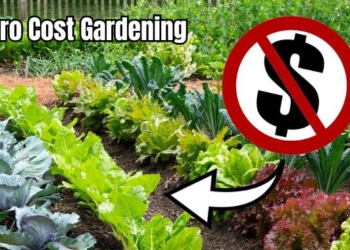
We’ve been led to understand for years that we can reduce our waste and impact on the environment by carefully sorting our discarded materials so that a percentage of our consumer wastes are being repurposed and staying out of landfills.
But have you ever wondered if all of the work that going into sorting your garbage is making a difference?
If you’re like me, you’ve been confused by the recent changes in what is accepted. I’ve heard that a single contamination can result in thousands of pounds of recyclable goods being thrown away. So what good are we doing by recycling?
A Positive Argument for Recycling
Some individuals have argued that the environmental impact that processing recyclable goods utilizes essentially cancels out any positive impact it would otherwise have. The use of trucks, machine equipment and recycling factories all have their footprint. Does this make it not worth having them at all?
According to recycling experts, it is a valid question that is constantly being examined by scientists. Good sustainable material management takes all of these factors into consideration and finds a way to create more sustainable and efficient means of recycling your goods.
When it comes down to it, what recycling does to keep wastes out of landfills outweighs what impact they may have otherwise. This is a good mentality to have when you feel like giving up on reducing your carbon footprint. Every little bit can add up. So don’t lose hope when you’re wondering if recycling counts. It truly does help the earth, but we still have to keep an eye on the whole process.
The Other Side of Recycling
The story is not all positive for recycling. As much good as it does, there is a downside to the current state of the recycling business. But that is partly because not every item that goes into the recycling bin really gets recycled.
This can be for several reasons. It might have to do with food wastes being left in a peanut butter jar or a pizza box, making it unusable. Or if a glass container that is going to be repurposed breaks on its journey, it will be simply thrown away.
And even then, if all of the materials are recycled and broken down properly, not all of the materials are bought by a company to reuse. This could be due to it being low-quality or having a higher price than low-cost plastics. Unfortunately, the recycled plastics may also contain unwanted chemicals that are known to leech out with time into food products.
Recently you may have heard about China changing its policy on accepting recycled plastics from the U.S. due to low-quality. This has caused a huge problem in our recycling program as we scramble to figure out another way to use these recycled plastics.
Without anywhere to go, much of this plastic ends up in a landfill. Unfortunately, we have no way of disposing of it in another less impactful way. This is creating problems where materials that are processed end up back in our natural environment, even though they are not made with natural environmental compounds. This means they’ll sit around on the earth for long after we’re gone.
What Do We Do?
Just because not every bit of plastic you use is ending up with a second life, you shouldn’t stop recycling. Recycling creates a healthy mentality about our wastes and reduces some level of plastics going back into the environment.
To improve your positive impact while recycling, also aim to lower your use of resources. That way, fewer plastics are entering into your recycling bin in the first place. It’s a win-win, less sorting for you and less waste for the environment!
Choosing to buy goods that are compostable and environmentally sustainable can go a long way in encouraging companies to produce their goods more responsibly. Showing that customers prefer to buy sustainable goods can go a long way to moving our consumer culture into more responsible packaging. You can even go the extra step to choose stores that only stock brands that are dedicated to minimizing their impact on the environment.
So don’t give up if you’re wondering if recycling is making a difference. Although as a society we’re still figuring out how to properly use all of the recycled goods, there is still some percentage of your plastics being kept out of landfills through the cause.
Keep recycling and consuming responsibly. Encourage your local companies by buying quality brands and choosing options that minimize wastes.















